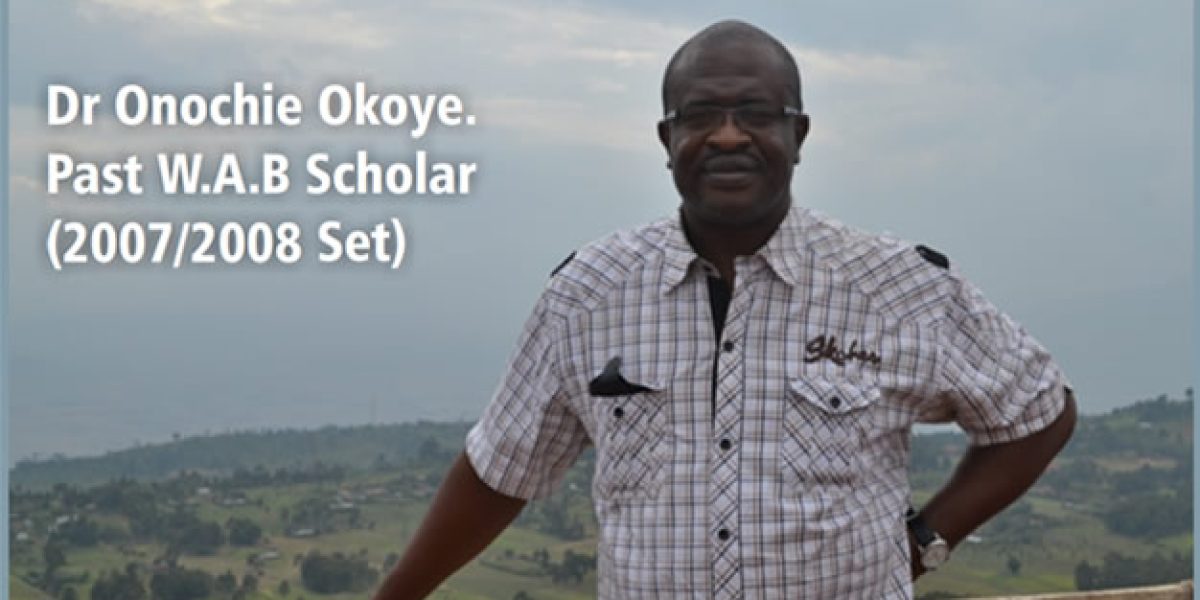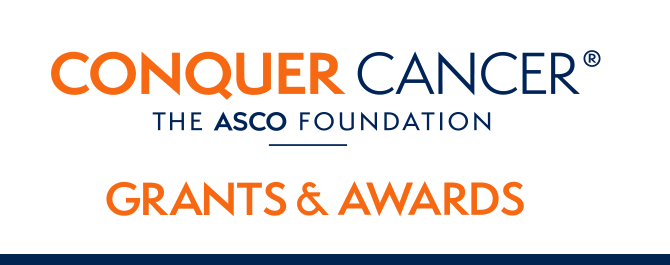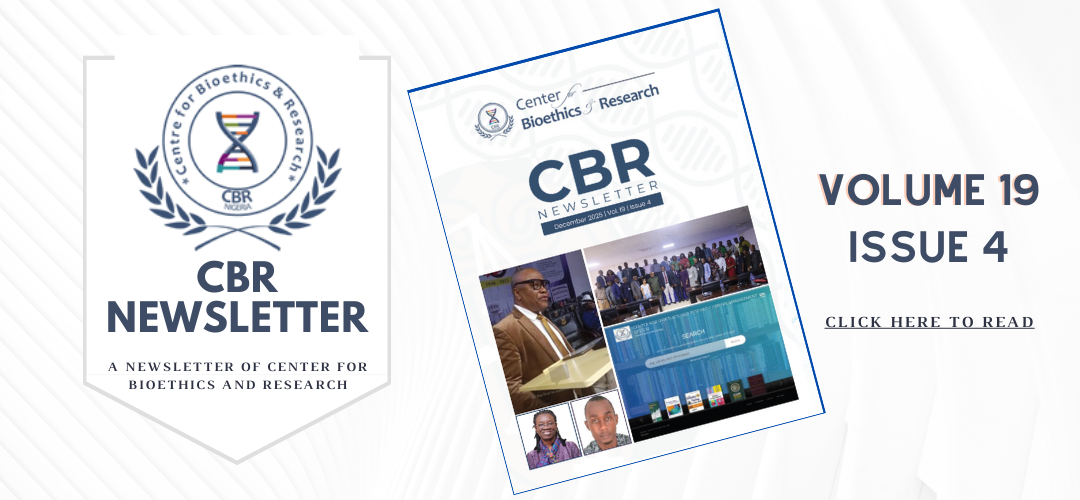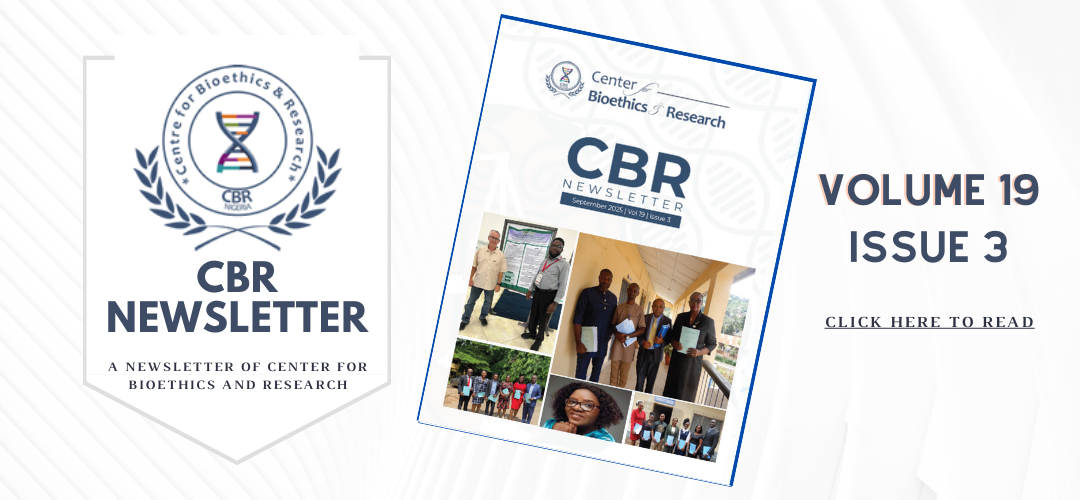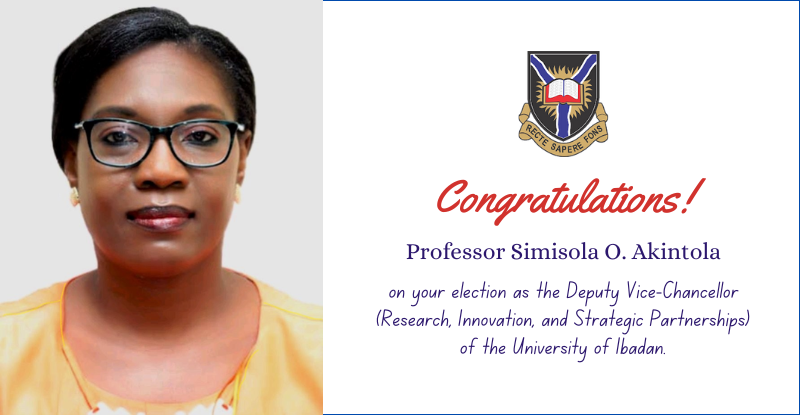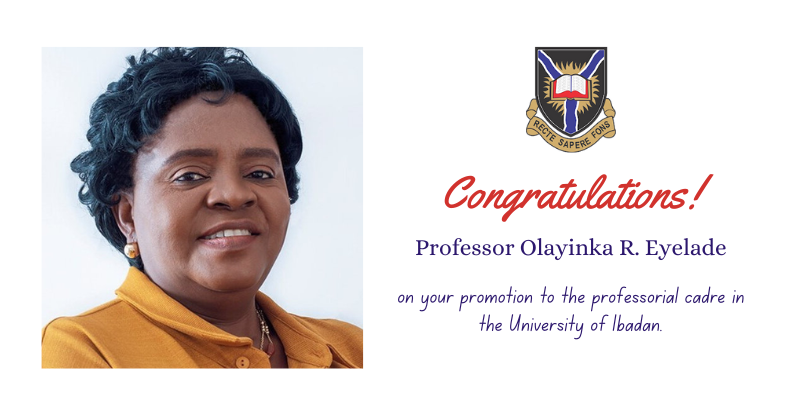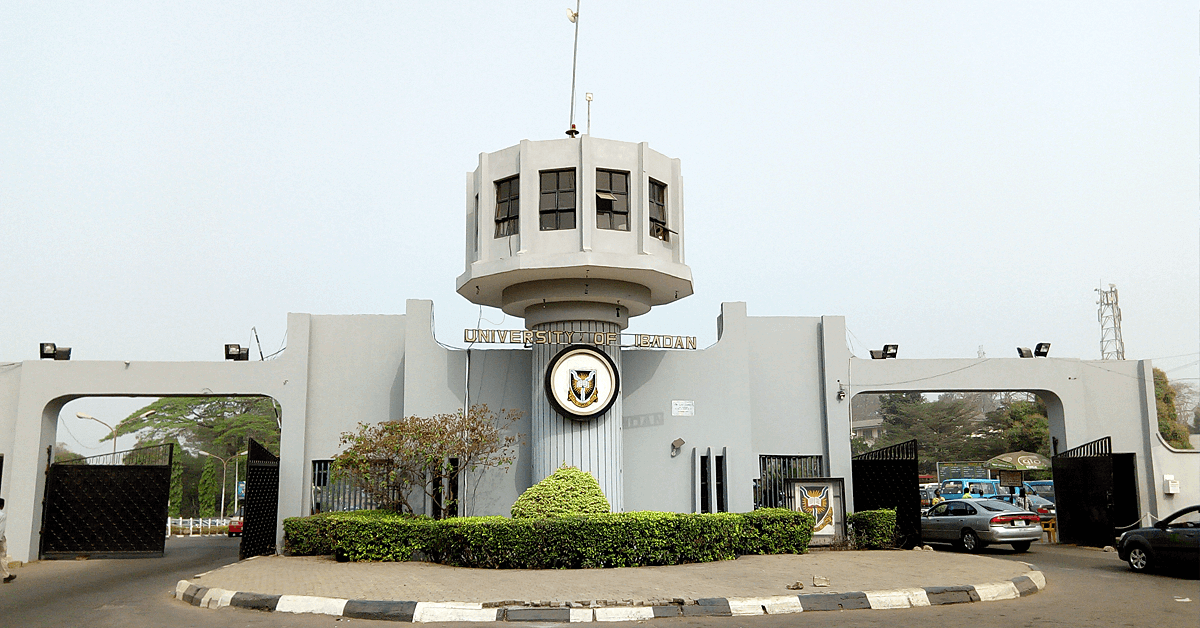I am Onochie Ikechukwu Okoye, a bioethicist and ophthalmologist from Nigeria. My principal duties at my parent institutions (University of Nigeria and University Of Nigeria Teaching Hospital, Ituku –Ozalla, Enugu, Nigeria) include clinical services, teaching, training, research, administration and community work.For some reasons beyond my comprehension, I had always nursed some measure of interest in the field of bioethics, without even having a clear sense of its nature and scope. When I offered to drive one of my senior female medical colleagues, also my teacher and trainer (Prof Rich Umeh) to the Enugu Airport sometime in 2007, little did I know that i was taking the first steps which would eventually translate to an unplanned odyssey to this highly specialized field of bioethics. In the course of our discussions en route our destination, I mentioned my desire to pursue further postgraduate training to prepare me for life as a researcher. This consequently triggered off an exchange of ideas which culminated in my opting to apply for a scholarship from the West African Bioethics training program (WAB). By September/October 2007, I had found myself in the ancient city of Ibadan registering for the MSc degree program in bioethics at the University of Ibadan (UI), Nigeria as a WAB scholar.
Prior to my participation in this highly intensive 3-semester program, my initial responses on bioethical issues could at best be described as knee jerk and impulsive. Of course, these reactions were largely premised on my medical knowledge, life experiences, and religious beliefs as a Christian and the little I knew of bioethics. Undergoing the training turned out to be a truly life-changing and humbling experience. I was quickly reminded about how little I knew about other perspectives on life and human existence. The program was planned in such a way that it put some structure and organization into my thinking process, pushed me to think deep, hard and long on issues raised for deliberation, and molded me into respecting the opinions of other people.
Looking back on the experiences I garnered from my sojourn in the University of Ibadan, I cannot help but have a laugh at myself. Having seamlessly and successfully completed residency training in ophthalmology and a couple of other sub-specialist training programs a couple of years prior to my UI admission, i was cock-sure that I could effortlessly handle the associated rigours of post-graduate academic life in the university. Initially, i had walked into the classroom in my first week believing that i was prepared for what was to befall me, but i could not have been more naïve and presumptuous. From the Philosophy and Foundations of Bioethics modules through the modules on social/behavioral research and research designs/protocol review process to the modules on clinical ethics and the highly challenging yet illuminating biostatistics plus the research project, it was an exciting, humbling and inspiring adventure to an entirely new body of knowledge.
We had series of lectures/tutorials, case studies, film/book reviews, review of topical bioethics controversies and interactive sessions. We also had intimidating volumes of readings to cover, as well as assignments to do. The training took me far beyond what I thought I knew about research/clinical practice and what I had previously read in many textbooks and journals as a medical student, resident doctor and even, as a consultant ophthalmologist. I was introduced to the world of Hippocrates, Aristotle, Plato, Kant, Ross, Thomas Aquinas, Rawls, Singer, Beauchamp, Childress, Marshall, Ezekiel Emanuel, David Wendler, Jeremy Sugarman, and Clement Adebamowo. I became a historian overnight, having being taught about the Nazi war crimes and the Nuremberg trial/code, the Wichita Jury study, the Willowbrook Hepatitis studies, the Jewish Chronic Disease Hospital studies, the Milgram studies of obedience to authority, the Tearoom trade study, the Tuskegee syphilis study and the Pfizer Kano Trovan study. I quickly learnt strange-sounding and highfalutin words which became the basis of my bioethical and medical lexicon. Words such as Nicomachean ethics, autonomy, informed consent, assent, paternalism, Belmont report, Helsinki Declaration, principlism, utilitarianism, deontology, casuistry, beneficence, coercion, exploitation, therapeutic misconception, confidentiality, logistic regression, power of a study, conflict of interest, vulnerable populations, institutional review board, protocol review, risk-benefit analysis, euthanasia, genomics, bio-banking and NHREC (pronounced en-rec for: National Health Research Ethics Committee of Nigeria ).
Apart from the numerous highly intellectual, eye-opening and engaging debates and interactions we had with the faculty, I had ample opportunity to forge close, respectful and enduring friendships with all my course mates and most of the faculty/staff at the bioethics center. Though it may sound trite to some people, this aspect may actually be one of the most important things I remember vividly about my training program. Our class had the rare opportunity of studying under a very conducive learning environment (constant power supply, un-interrupted internet connectivity, access to international publications and relevant educational materials) and being trained by very knowledgeable, talented and unassuming lecturers/resource persons. I lived in the very comfortable residence provided by the WAB, along with a couple of my other colleagues. This, to a large extent, helped to build a strong bond among us which invariably enabled all of us to live cordially as one big family.
Since graduation from the MSc Bioethics program, I have assumed some professionally rewarding responsibilities/positions and been involved in a couple of activities which are related to bioethics. I have also attended courses such as the 36th Intensive Bioethics Course of the Kennedy Institute of Ethics at the Georgetown University, Washington DC, USA (June 2010) and the Research Ethics Course organized by the Steve Biko Center for Bioethics, University of Witwatersrand, Johannesburg, South Africa (February 2011), and meetings like the 2nd World Conference on Research Integrity and 10th World Bioethics Congress in Singapore (July 2010) as well as the 2014 PRIM&R Advancing Ethical Research conference in Baltimore, Maryland ,USA (December 2014) and more recently, the 27th and 28th Annual Dorothy J MacLean Fellows Conference in Chicago, USA (November 2015, 2016).
I am a very active member of the Health Research Ethics Committee of the University of Nigeria Teaching Hospital, Ituku-Ozalla, Enugu, Nigeria (UNTH HREC). I am also a member of the Ethics Committee of the Ophthalmological Society of Nigeria, where I have been charged with the mandate of developing a code of ethics that will be applicable to ophthalmic practice and research in Nigeria. In the Enugu State Chapter of the Nigerian Medical Association, I also serve on the ethics committee. In my parent institution (University of Nigeria), I currently act as the co-coordinator of a university-wide research group called the Bioethics Research interest group, which has the mandate of stimulating and promoting research in bioethics-related issues. With the support of some of my colleagues in my university and Prof Adebamowo, we have finalized plans to commence a postgraduate degree program in bioethics at the medical school from the 2017/2018 academic session. I am also the co-coordinator for the Responsible Conduct of Research course of our institutional REC; the first of which we held on June 18, 2015 in collaboration with the West African Bioethics Program. In the course of time, we hope to make this an annual event.
Apart from making bioethics-related publications, I have also attended a couple of other ethics-related meetings in which I made presentations, namely the 2nd African Health Research Ethics Symposium (Sep/Oct 2010) organized by SARETI in Durban, South Africa; 2nd Annual Good Clinical Practice and Proposal writing course organized by the AGCPN in Enugu, Nigeria (June 2011); Responsible Conduct of Research workshop organized by the MEPIN in Enugu, Nigeria (August 2011); EAGER-AFRICA International Conference on Ethics and Genomics Research in Africa held in Abuja ,Nigeria (November 2011); Training workshop on proposal writing/research methodology for the 2013 African Research League grant held in Enugu, Nigeria (February 2013); Research Methodology Workshop organized by MEPIN in Enugu (April 2013); Vision 2020 stakeholders meeting organized by CBM/Vision2020 in Jos, Nigeria (August 2013); Faculty development workshop on Innovative Adult Teaching Methodologies organized by the CCCRN, Enugu, Nigeria (Sept 2013); Intensive course in HIV/AIDS care organized by the CCCRN in Enugu (Oct 2013); Training workshop for HREC members organized by the UNTH HREC (June 2014); 9th International Scientific Conference of the Association of Catholic Medical Practitioners of Nigeria in Enugu (July 2014); Step-down workshop in Bioethics organized by the MEPIN in Enugu (July 2014); 34th, 35th, 36th, 37th, 38th Annual Scientific meetings of the Ophthalmological Society of Nigeria (2009, 2010, 2011, 2012, 2013); PRIM&R Advancing Ethical Research (AER) conference in Nashville, USA (2009) and the Maclean Centre Fellows Research Presentation Conference held in University of Chicago, USA ( May 2015).
Until my joining the one-year clinical medical ethics fellowship at the MacLean center (University of Chicago) in July 2015, I had functioned as the chair in ophthalmology at my parent institutions. On completion of this fellowship program, I was elevated to the position of a senior fellow at the center. As part of the fellowship, I have been attending the clinical ethics consultation meetings and working largely on the development of an appropriate undergraduate medical ethics curriculum for Nigerian universities and innovative methods of teaching bioethics in Sub-Saharan Africa. I am also developing a model for clinical ethics consultation services in Nigeria; one which will be sensitive to our local issues and health care practices/value systems and be in line with global best practices. Other current research interests include consent issues in secondary use of stored human biological samples, medical errors, prognostication in end-of-life care and allocation of resources in human organ transplantation programs. I have also been assisting in the Doctor-Patient Relationship Course, a winter module for the First year Medical students in the University of Chicago. By virtue of my background in bioethics, I also act as a moderator in the on-line interactive “Fundamentals Of Clinical Research Course”, a course being organized by the Center For Global Health, University of Chicago. On the whole, I can confidently assert that the MSc degree program in Bioethics at the University of Ibadan was very captivating, deeply informative and, has largely provided me with a stronger foundation for life as a human being, clinician, researcher, teacher/trainer, community worker, administrator and of course, bioethicist! Going forward, i still nurse the ambition of doing a PhD Program in bioethics and becoming very relevant to the bioethics community in Africa.

